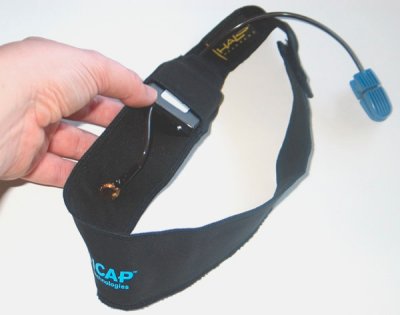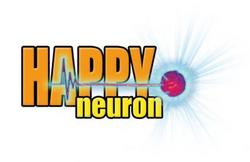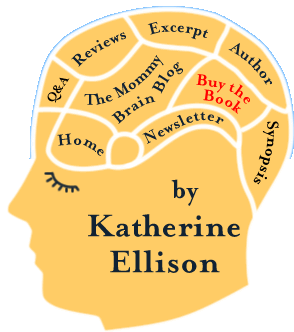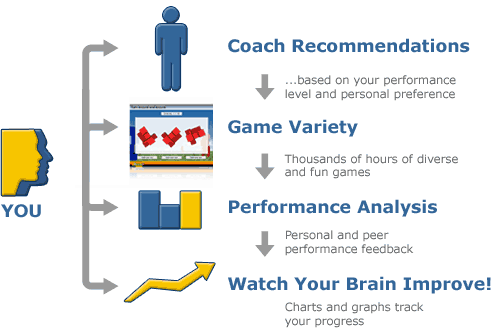Medical Grade Neurofeedback at Home for $995
 Neurofeedback is one of the most promising techniques we have for improving brain function and cognitive performance through systematic training. As we have discussed on the Next Brain Blog before:
Neurofeedback is one of the most promising techniques we have for improving brain function and cognitive performance through systematic training. As we have discussed on the Next Brain Blog before:
Neurofeedback training devices translate brainwaves into an external signal such sounds, graphs on a computer screen, movement of your computer’s cursor, action in a video game and even the motion of remote controlled toys.
Getting access to professional grade equipment can be very expensive. Consumer devices such as Neurosky’s headset or Emotiv’s EPOC (both of which I own) cost just a few hundred dollars but have limited functionality.
The market might be changing.
ICAP Technologies is offering the ICAP Release Meter, a professional grade neurofeedback system for $995. To get this price you need to use the coupon code available on the Mindware Forum. The Mindware Forum offers a good review of ICAP including a video interview.
Interested to hear from readers that have used the ICAP system or any at-home EEG-based neurofeedback training device.
Categories: Manage Emotions, Memory and Learning, Mental Focus, Software, Training Tags: brain training, neurofeeback
Boost Happiness by 25% with Simple Gratitudes
 By consciously cultivating a sense of gratitude you can improve happiness by 25%. While this does not raise your IQ it definitely raises you emotional quotient or EQ by developing skills in recognizing and managing emotions.
By consciously cultivating a sense of gratitude you can improve happiness by 25%. While this does not raise your IQ it definitely raises you emotional quotient or EQ by developing skills in recognizing and managing emotions.
But how do you cultivate gratitude? For some excellent practical tips check out Enhance Happiness and Health by Cultivating Gratitude: Interview with Robert Emmons. Some examples:
“The most common method we use in our research is to ask people to keep a “Gratitude Journal” where you write something you feel grateful for. Doing so 4 times a week, for as little as 3 weeks, is often enough to create a meaningful difference in one’s level of happiness. Another exercise is to write a “Gratitude Letter” to a person who has exerted a positive influence on one’s life but whom we have not properly thanked in the past, and then to meet that person and read the letter to them face to face.”
I am interested to hear from readers that use specific techniques for building EQ through practicing gratitudes.
Categories: IQ and EQ, Lifestyle, Manage Emotions Tags: EQ, experiential learning, smart phone
Best Evidence for Improving Brain Health
 The Alzheimer’s Association working in conjunction with the National Institute for Health has a established a website to keep citizens up to date on what the latest scientific evidence has to say by brain health. The site Maintain Your Brain, recommends eating a brain-healthy diet and staying physically, mentally and social active. Techniques we have covered elsewhere in the Next Brain Blog.
The Alzheimer’s Association working in conjunction with the National Institute for Health has a established a website to keep citizens up to date on what the latest scientific evidence has to say by brain health. The site Maintain Your Brain, recommends eating a brain-healthy diet and staying physically, mentally and social active. Techniques we have covered elsewhere in the Next Brain Blog.
Of special interest is the 70-page National Public Roadmap for Maintaining Cognitive Health (this a 2.5 MB file) and the Interactive Tour of the Brain. The tour is quick and easy but informative. It provides basic knowledge of the brain and Alzheimer’s disease.
A few minutes on the site provides strong motivation for considering the long-term health of your brain and what needs to be done today. To quote the site:
“When people think about staying fit, they generally think from the neck down. But the health of your brain plays a critical role in almost everything you do: thinking, feeling, remembering, working, and playing – even sleeping.”
Interested to hear from readers on what specific things they are doing to maintain brain health.
Categories: Cognitive Decline, Diet, Lifestyle Tags:
Benchmark Your Cognitive Fitness with Precision
 According to a recent press release, Happy Neuron, a brain training company has amassed a database of some 50 million training results. This is the biggest database of its kind and allows them to compare your cognitive training results to peers more precisely than anyone else on the market.
According to a recent press release, Happy Neuron, a brain training company has amassed a database of some 50 million training results. This is the biggest database of its kind and allows them to compare your cognitive training results to peers more precisely than anyone else on the market.
Happy Neuron uses games to train your brain. They have games for attention, language, memory, visual-spatial and executive function.
I am interested to hear from readers that use Happy Neuron’s products.
Categories: Executive Function, Memory and Learning, Software, Training Tags: brain training, games
Neurobics: Low-Effort Cognitive Stimulation!
 Neurobics is a unique approach to brain training developed from the latest findings in neurobiology. According to one popular approach, Keeping Your Brain Alive, the core idea is this:
Neurobics is a unique approach to brain training developed from the latest findings in neurobiology. According to one popular approach, Keeping Your Brain Alive, the core idea is this:
“Neurobic exercises use your five physical senses and your emotional sense in unexpected ways and encourage you to shake up your everyday routines. Neurobics don’t require paper and pen or isolating yourself with puzzles. Everyday life is the Neurobic Brain gym. They can be done anywhere, anytime in offbeat, fun and easy ways while you’re getting up, commuting, working, eating, shopping or relaxing. They are designed to help the brain manufacture its own nutrients that strengthen, preserve and grow brain cells.”
Some examples:
- Take a different route when commuting to work this morning
- Brush your teeth with the other hand
- Use just the sense of touch when unlocking a door (don’t look at the lock)
- Move your waste basket at work
- Sit someone different at the dinner table tonight
Tiny changes with a significant and positive neurochemical impact. Any exercise can be Neurobic as long as it involves your senses in a new context, demands attention and breaks routine. This means we can design our own! The Keep Your Brain Alive Program was developed by Larry Katz a well-known Duke University Neurobiologist and includes 83 very specific things to try.
Interested to hear from readers that do Neurobics. What exercises do you do and how have you built them into your daily routine?
Categories: Books, Cognitive Decline, Lifestyle, Manage Emotions, Mental Focus, Perception Tags: brain training, experiential learning
Does Raising a Child Make You Smarter?
 Absolutely, if you are the Mother! At least that is the argument made Katherine Ellison in her book the Mommy Brain: How Motherhood Makes Us Smarter.
Absolutely, if you are the Mother! At least that is the argument made Katherine Ellison in her book the Mommy Brain: How Motherhood Makes Us Smarter.
Motherhood gives a brain boost in many ways including face reading, multi-tasking, fearlessness, serenity, empathy, assertiveness and mental dexterity. These improvements in both IQ and EQ come from a combination of new hormones, motivation and practice that motherhood brings about.
The book is well founded in the latest neuroscience. It upends the stereotype of mothers checking their brains at the delivery room doors. Check out the Mommy Brain site by clicking on the graphic to the right.
Categories: Books, IQ and EQ, Lifestyle, Manage Emotions, Mental Focus, Parent, Perception Tags: embodied cognition, EQ
Audio CDs on Mindfulness – Do They Work?
 Mindfulness techniques are designed to bring us into the present moment as fully as possible. It involves paying attention on purpose and without judgment. Mastering this type of attentional focus has proven to be a gateway for higher cognitive performance.
Mindfulness techniques are designed to bring us into the present moment as fully as possible. It involves paying attention on purpose and without judgment. Mastering this type of attentional focus has proven to be a gateway for higher cognitive performance.
Several self-instruction techniques for doing mindfulness training have been covered in other posts on the Next Brain Blog. Unfortunately, it can be difficult for beginners to use such techniques on their own. It is best to work with an experienced guide. This can be expensive and inconvenient. One alternative is to try and get such guidance off a CD. But do they really help?
To find out I bought a copy of the audio book Mindfulness for Beginners. It is a $13 two-CD set prepared by Jon Kabat-Zinn a well known leader in the field. The first CD provides an overview of the foundations of mindfulness and the second walks you through five distinct mediations or training exercises. I listened to both CD and then practiced the mediation that seemed most interesting. Although the narration style took some getting use to, the coaching and just plain reassurance was key for making progress.
One point that was particularly important (for me at least) was coaching around what to do as your mind wanders during the mediation.
Dr. Kabat-Zinn was very clear that such wandering is fine. The goal is not to stop it but to gently bring your attention back to the present. You do this by refocusing your attention on the subject of the mediation – eating a rasin in my case – over and over again. Indeed, for the beginner, bringing your attention back to focus on the mediation is the point of the exercise. Bring it back enough times and focusing becomes a habit. I experienced a bit of that! Something I was not able to do working on my own with books.
 I was attracted to the eating mediation because the exercise walks you through looking at, feeling, smelling, hearing, salivating, chewing, swallowing and otherwise sensing a raisin. May sound a bit strange but I can see many uses in my design work for such direct sensory experience. My plan is to try the other mediations and then build one into my daily mind training routine.
I was attracted to the eating mediation because the exercise walks you through looking at, feeling, smelling, hearing, salivating, chewing, swallowing and otherwise sensing a raisin. May sound a bit strange but I can see many uses in my design work for such direct sensory experience. My plan is to try the other mediations and then build one into my daily mind training routine.
I am interested to hear from readers that can recommend other CDs for mindfulness training.
Categories: Books, Mental Focus, Perception, Training Tags: Buddhist, mindfulness
See Much Better By Thinking Differently
 Believe it or not your mindset has a big impact on how well your eyes work. The assumption that you should be able to see something or that you have excellent eye sight translates into improved visual performance scores. This fact was dramatically illustrated in a new research study, Vision Gets Better with the Right Mindset, reported in Science News.
Believe it or not your mindset has a big impact on how well your eyes work. The assumption that you should be able to see something or that you have excellent eye sight translates into improved visual performance scores. This fact was dramatically illustrated in a new research study, Vision Gets Better with the Right Mindset, reported in Science News.
“Eyesight markedly improved when people were experimentally induced to believe that they could see especially well, Langer and her colleagues report in the April Psychological Science. Such expectations actually enhanced visual clarity, rather than simply making volunteers more alert or motivated to focus on objects, they assert.”
I have seen similar studies concerning memory. If you really believe you have a great memory (or a very poor one) you do better (worse) on recall and recognition tests.
So how do you get the right mindset to achieve high-performance vision? One way may be to do some visual training and score well. You may want to check out, How Good are Your Visual Skills? There are a number of straight forward exercises and tests covering perception, tracking, focusing and eye teaming. For example, one of the perception test (figure ground) is shown in the picture above. Do you see the owl?
I am interested to hear from readers that have used specific techniques to develop affirming assumptions about their ability to see.
Source: Image of Pig
Categories: Perception, Training Tags: Mindset
3-Hour Brain Boot Camp at UCLA
 The Center for Memory and Aging at UCLA offers a half-day intensive course that covers (and I quote):
The Center for Memory and Aging at UCLA offers a half-day intensive course that covers (and I quote):
- Measure baseline memory, stress and fitness levels to individualize healthy lifestyle programs.
- Learn basic techniques to respond to everyday memory challenges..
- Sample a healthy brain diet and learn recipes for a brain-protective nutritional plan.
- Master advanced memory techniques for names and faces.
- Practice relaxation exercises to improve mental focus.
- Map out a daily lifestyle plan for maintaining benefits for the long haul.
- Gauge progress and notice results in just one day.
The course is geared towards older adults with memory concerns. It was developed by Gary Small and other experts in memory, aging and the brain.
Interested to hear from readers that have completed this course or similar courses that take a scientific approach to age-related memory challenges.
Categories: Cognitive Decline, Memory and Learning, Older Adult, Training Tags:
Solve Problems and Learn While You Sleep?
 We spend a good part of our life sleeping and dreaming. Getting adequate quality sleep is essential for brain health. But we may be able to go farther than that and tune how we sleep to enhance cognitive performance. Lucid dreaming, subliminal learning and cognitive priming are three techniques that have been suggested for getting more out of our brains even while we sleep. We will cover these topics as well as how sleep in general impacts peak cognitive performance on the Next Brain Blog.
We spend a good part of our life sleeping and dreaming. Getting adequate quality sleep is essential for brain health. But we may be able to go farther than that and tune how we sleep to enhance cognitive performance. Lucid dreaming, subliminal learning and cognitive priming are three techniques that have been suggested for getting more out of our brains even while we sleep. We will cover these topics as well as how sleep in general impacts peak cognitive performance on the Next Brain Blog.
Cognitive priming is my personal favorite. I have done it with good results for nearly two decades. I have never seen any scientific studies (until now) that back it up.
Cognitive priming to improve performance through sleep is simple to do. You intensely immerse yourself in the topic to learn or problem to solve near bedtime. When you sleep you want to have a dream about the problem or topic. Upon waking you should be able to make much better progress on the topic or problem than you could have if you did not dream about it.
I was happy to hear that such phenomenon was demonstrated under scientific conditions in a a recent study at the Beth Israel Medical Center. I was reported on in the New York Times as Learning While You Sleep. Volunteers were given the task of learning to move through a complex maze. After a training period some of the group slept for 90 minutes and the others just rested.
Re-testing revealed that those that slept and dreamt about the maze had a 10 times improvement in score while those that slept but did not dream or just rested showed no improvement or even a a worse score.
Categories: Memory and Learning, Problem Solving, Sleep, Training Tags:



